
Lajme
string(94) "interview-former-nato-spokesperson-jamie-shea-i-am-a-firm-supporter-of-kosovos-nato-membership"English

Gazeta Express
15/12/2021 15:53Interview| Former NATO spokesperson Jamie Shea: I am a firm supporter of Kosovo’s NATO membership
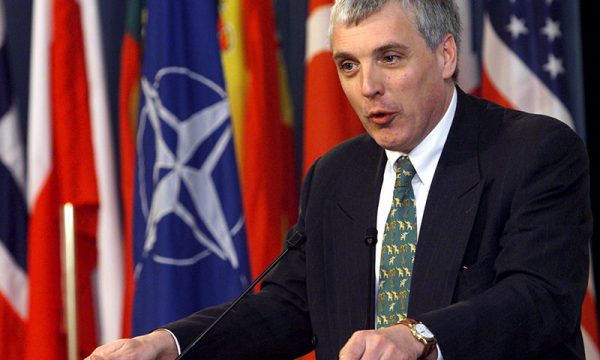
English

Gazeta Express
15/12/2021 15:53Gazeta Express: How do you comment on the statements of Foreign Secretary Truss after the meeting with the foreign ministers of the Western Balkans?
Jamie Shea: I was encouraged that Foreign Secretary, Liz Truss, organized a meeting with the 6 Western Balkan countries in London lmmediately after the G7 in Liverpool. It is good that post-Brexit the UK is not only turning its attention to the Indo-Pacific or the US but also continuing to play an active role in stabilising the Western Balkans. This is a region where the UK has made such a big contribution over the last 30 years with names such as Tony Blair, Robin Cook, Lord George Robertson, Lord Paddy Ashdown and General Mike Jackson irrevocably tied to the cause of human rights and nation building in Bosnia, Kosovo and North Macedonia. So it would be a mistake for the UK not to build on the networks of influence and in-depth knowledge of the region it has acquired.
Yet the London meeting was also timely and necessary because of the deteriorating security situation in the Western Balkans. The UK, like the EU and the US, is deeply concerned by the recent moves of Milorad Dodik to pull the Republika Srpska out of the common institutions of Bosnia Herzegovina, and Serbia’s unwillingness to address the issues surrounding war crimes resulting from the conflicts in the former Yugoslavia. There is the added stress factor of tensions between Belgrade and Pristina. So this is really the moment for the international community to put the Western Balkans back at the top of the political agenda and apply diplomatic pressure to counter those who are trying to tear up agreements, deny historical reality and sow divisions. In this connection it was useful that Liz Trust showed the willingness of the UK to coordinate closely with the EU and the US by inviting their special Western Balkans representatives, Miroslav Lajcak and Gabriel Escobar, to the meeting in London.
Yet it is not enough to just manage crises. The UK, EU and US must offer the region a positive and believable vision of the future; real and faster negotiations on EU membership, investments and market access and visa liberalisation. Those who want to be Europeans, must be able to live and act like Europeans. Fortunately Liz Truss and her EU and US colleagues seemed to recognise the need for this longer term strategy at the London meeting.
Gazeta Express: Do you see the UK’s return to the Western Balkans as an important step and how do you assess the appointment of Sir Stuart Peach as Special Envoy for the Balkans?
Jamie Shea: The nomination of Air Marshall Stu Peach as the UK Special Representative is an inspired choice. It demonstrates the UK’s continuing engagement by having someone who can work alongside the EU and the US special representatives on a daily basis, thereby cementing a common front of the transatlantic powers. Stu Peach has just completed four years as the Chairman of the NATO Military Committee, the alliance’s highest military post. So he is a military man who is well used to inter-acting with diplomats. He also knows the Western Balkans well, having overseen NATO’s KFOR mission in Kosovo and the integration of Montenegro and North Macedonia into the NATO military structures. He was also active in developing the alliance’s partnerships with all the countries of the region, including military exercises and cooperation on security challenges with Serbia. So I expect Stu Peach to “hit the ground running” and to be an effective, no nonsense and results oriented interlocutor.
Gazeta Express: How have you seen these three years of KSF and it’s transformation to an Army and its progress?
Jamie Shea: The Kosovo forces have made great strides not only in terms of training and equipment but also reaching out to the minority communities and the female population. It has a vital role to play as the integrator of the various social and ethnic groupings in Kosovo in ways that increase social cohesion and promote equality of opportunity for all. The key now is to enable the Kosovo army to participate in international peacekeeping, training and stabilisation operations so that it can gain experience and enhance its interoperability with NATO. Hopefully more NATO and EU member states that recognise independent Kosovo will push for this and incorporate Kosovo units into their national contingents. The Kosovo army is a success story for Kosovo, particularly as a social model and an instrument to deal with domestic challenges (such as pandemics or extreme weather events) and Pristina needs to do more to promote this success story to the outside world.
Gazeta Express: Do you think it is the last moment for Kosovo to join NATO given the tensions and the Russian influence in the region?
Jamie Shea: Russia never has had, and never will have, a veto on NATO’s decisions to welcome new members into its ranks. Russia tried hard to stop the accession of both Montenegro and North Macedonia to the alliance by organising propaganda campaigns and interfering in the domestic politics of both countries. In Montenegro, Moscow was even accused of attempting to stage a coup. But these interference efforts failed miserably and today both Montenegro and North Macedonia sit at the NATO table. I am a firm supporter of Kosovo’s NATO membership and the best advice I could give to my friends and colleagues in Pristina is to focus on internal reforms and on making Kosovo an attractive candidate. Kosovars must have faith in NATO and not be distracted by the scare mongering and conspiracy theories of those who do not have Kosovo’s interests at heart. /GazetaExpress/
Artikull i sponsorizuar
aaZyra e Axians në Gjakovë zgjerohet për t’u bërë një qendër kompetence për të gjithë portofolin e Axians në rajonin DACH dhe CEE
Axians, marka e Teknologjisë së Informacionit dhe Komunikimit e VINCI Energies, hapi vendndodhjen e saj të sapo ndërtuar në...
Të tjera nga rubrika
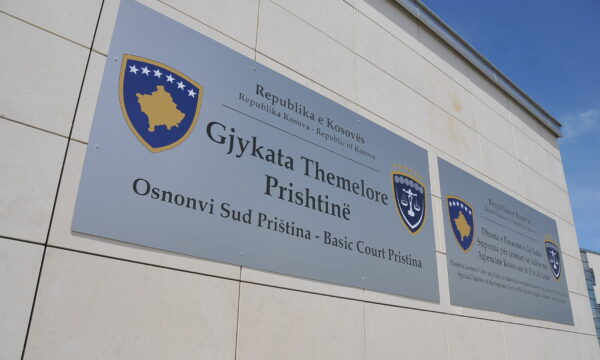
The Basic Court dismisses the indictment against Klodian Allajbeu, Ekrem Lluka and others

Jessica Simpson Takes Lookalike Daughter to Paris For 13th Birthday Amid Divorce
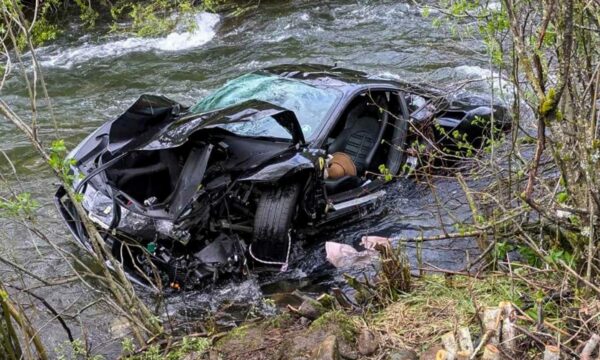
British couple die after Ferrari plunges off mountain in Spain
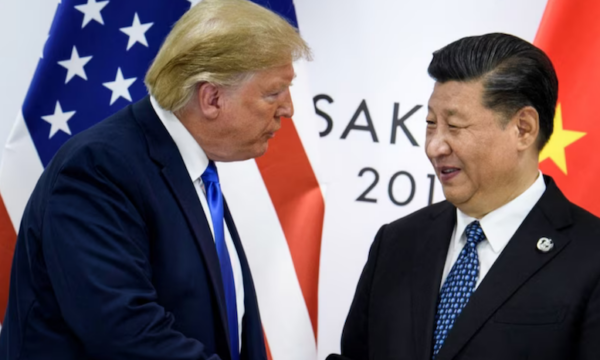
Tariffs Temporarily Cut As Talks Narrow Differences
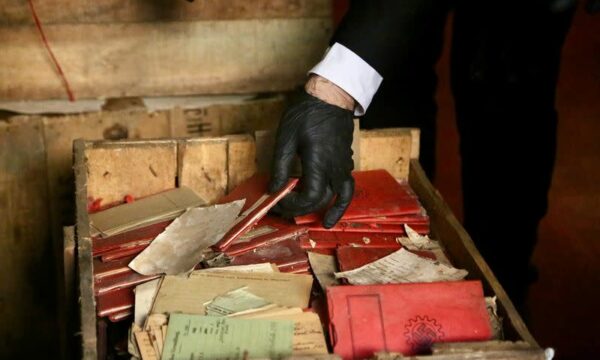
Argentina’s top court finds 80 boxes of Nazi materials in its basement

Why The Tops Of Microwave-Baked Treats Are Ugly And How To Fix Them
Te fundit
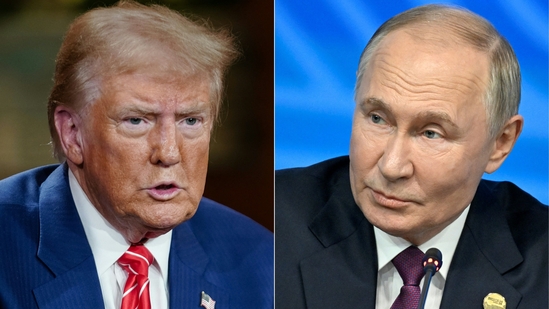
Putini e vë në dyshim fuqinë e ultimatumit të Trumpit
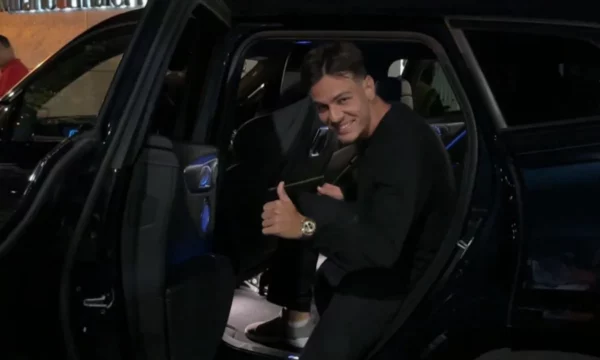
Fjalët e para të Ardon Jasharit pasi zbarkoi në Milano
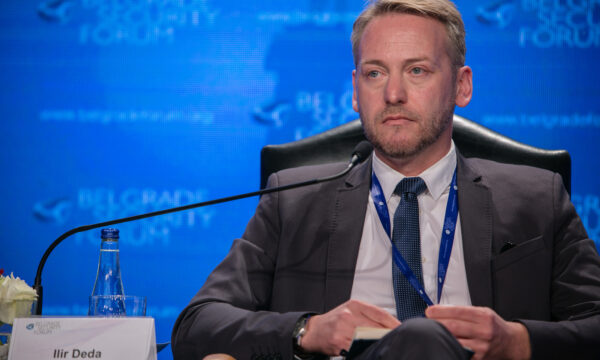
Deda: Politika e Kosovës s’di si të punojë me pjesëtarë të popullit serb në institucione
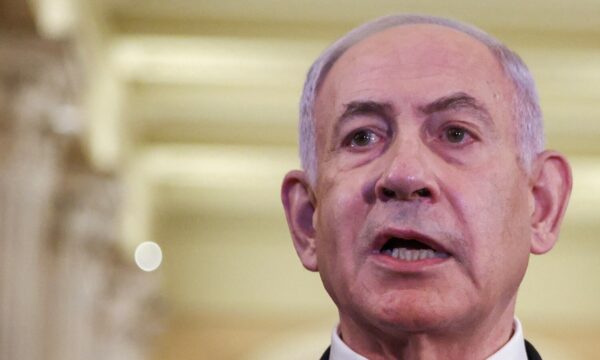
Netanyahu aludon për zgjerimin e luftës në Gazë
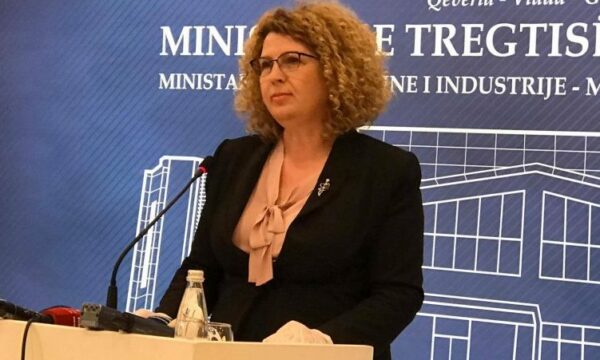
Rozeta Hajdari thërret konferencë për shtyp
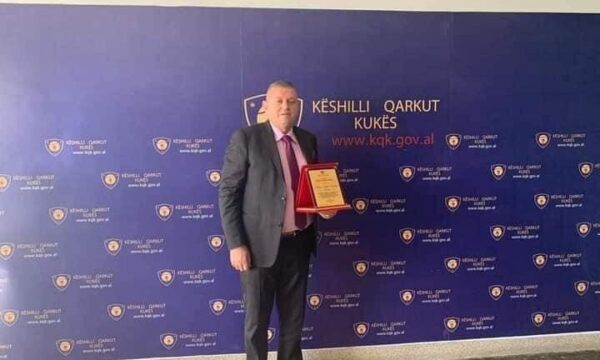
Koloneli i arrestuar në Prizren, pesë vjet më parë ishte nderuar me titullin “Nderi i Qarkut” i Kukësit
✕





